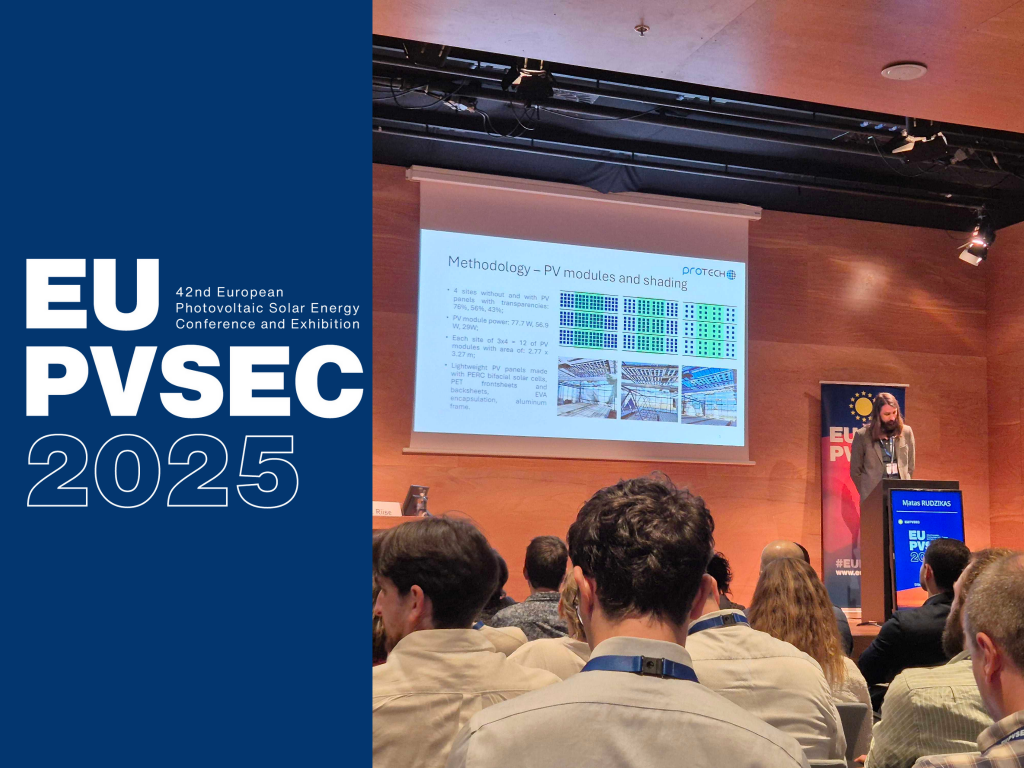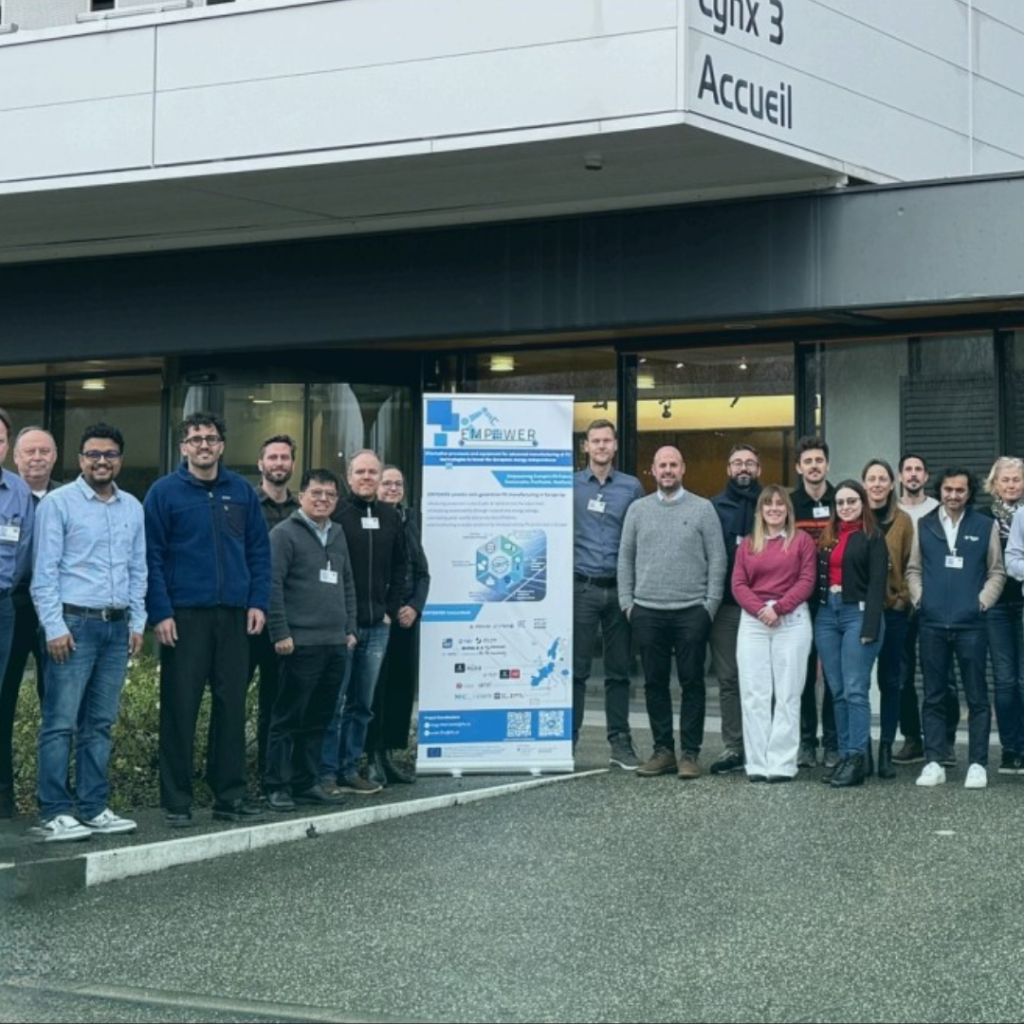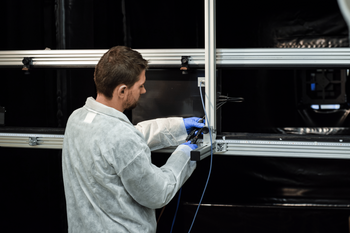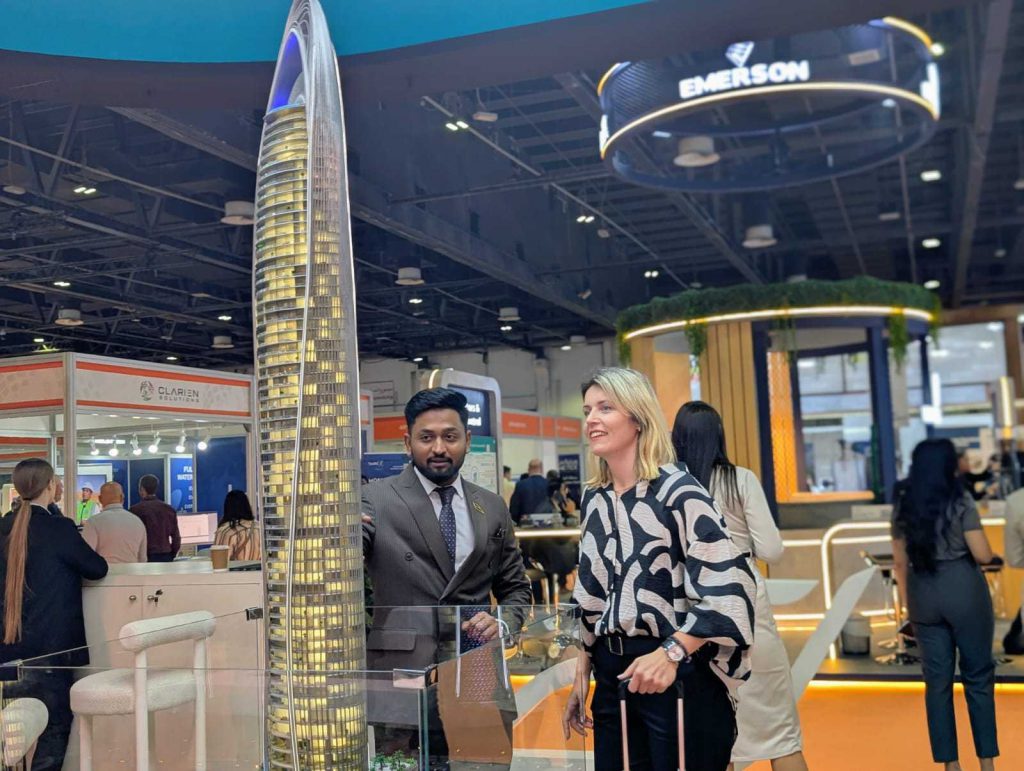At Protech we are committed to pioneering innovative technologies that shape a more sustainable future. One of research areas we are exploring today agrivoltaic (Agri-PV) solutions that integrate food and energy production within a united system.
This year, we had the privilege to present our work at one of the most significant PV conferences in Europe – EU PVSEC 2025. Our scientific researcher, Dr. Matas Rudzikas, shared results from our study: “Agri-PV Potential in Northern Climates: An Experimental Study on Panel Transparency and Leafy Vegetable Productivity”.
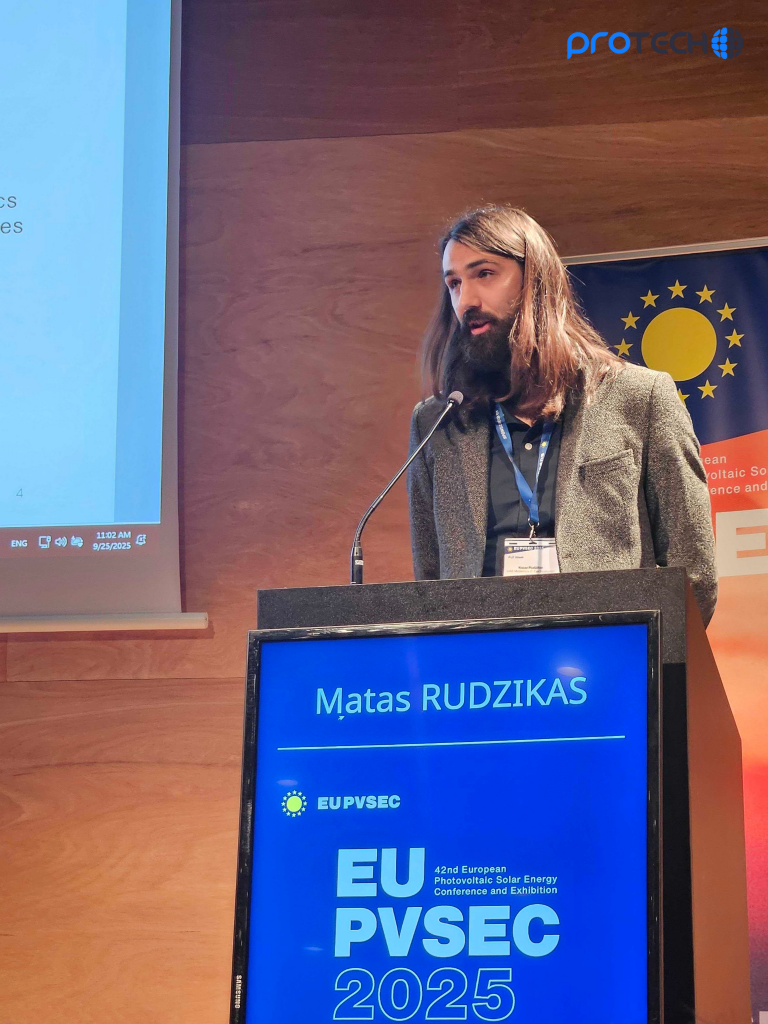
Greenhouse Trials in Lithuania
The trials took place in greenhouse in Baptai, Lithuania, in collaboration with the Lithuanian Research Centre for Agriculture and Forestry – LAMMC.
We cultivated lettuce, spinach, mustard, and purslane under lightweight, custom-made bifacial PV-panels with 43%, 56%, 76% light transmission. These semi-transparent solar panels were designed to integrate seamlessly into existing greenhouse structures without requiring extra support.

Key Findings: Shade-Tolerant Crops and Dual Benefits
The research assessed leaf area, biomass, glucose, and fructose content to evaluate crop performance.
The result: even while generating solar energy, the PV panels did not significantly reduce crop growth. Instead, the study indicated that leafy greens are shade-tolerant and can perform well under partial shading. It shows that Agri-PV can be viable and sustainable solution in northern climates with careful system design and further long-term research.
This finding is strong signal that greenhouses of the future could simultaneously deliver fresh vegetables and renewable energy, creating a more resilient and sustainable food-energy system.

Strong Interest in Agri-PV at PVSEC 2025
The session room was full of participants, highlighting the growing global interest in agrivoltaics research and technology. For northern climates especially, where agricultural productivity is closely tied to season light conditions, this technology represents a promising new pathway.
Looking Ahead
While the results are highly encouraging, the study also emphasizes the need to plan the Agri-PV system design and a long-term research are essential for scaling Agri-PV solutions in northern Europe.
With strong partnerships, like our collaboration with LAMMC, we are committed to driving forward scientific innovation in agrivoltaics and building a future where energy and agriculture work hand in hand.


